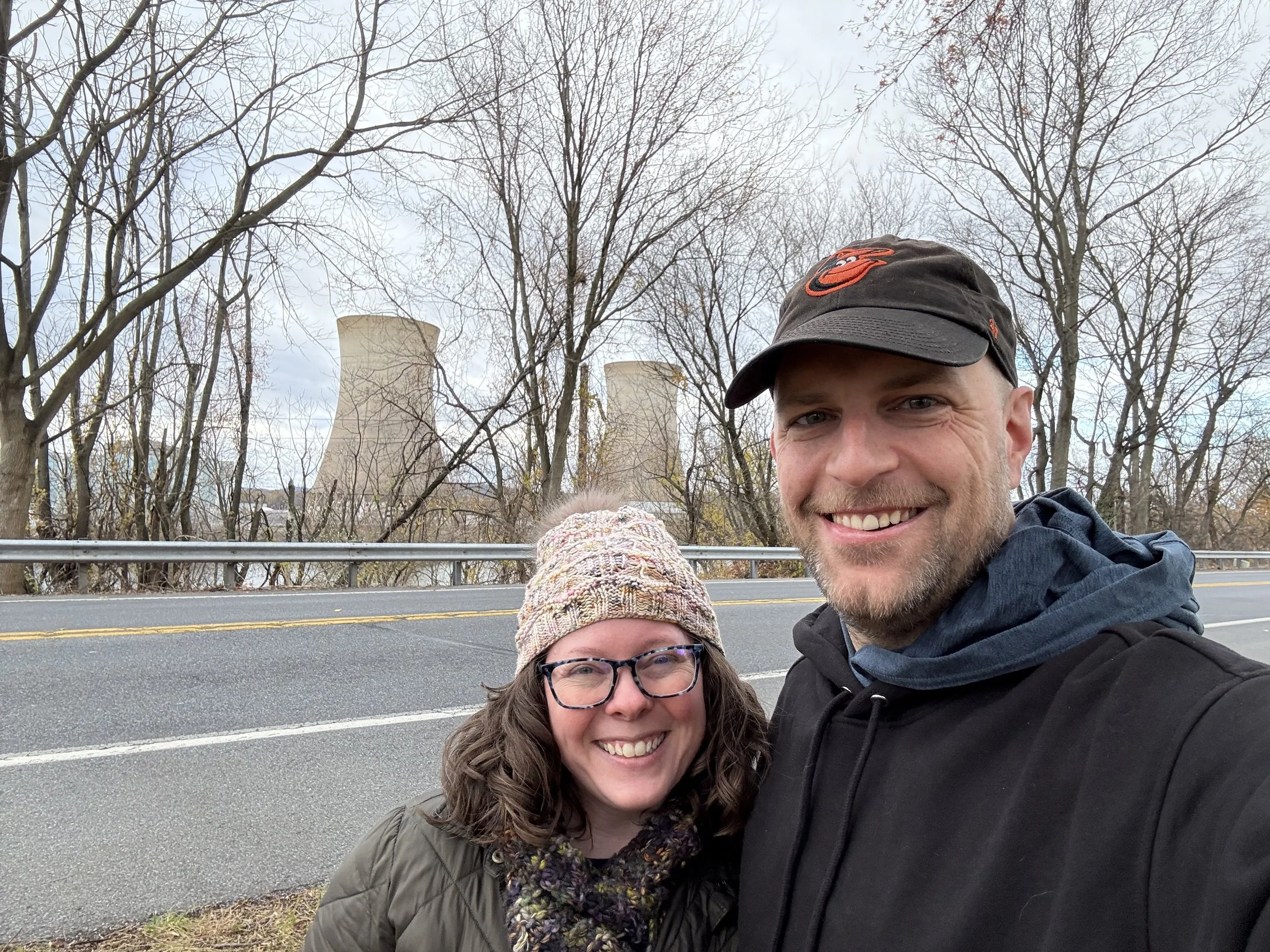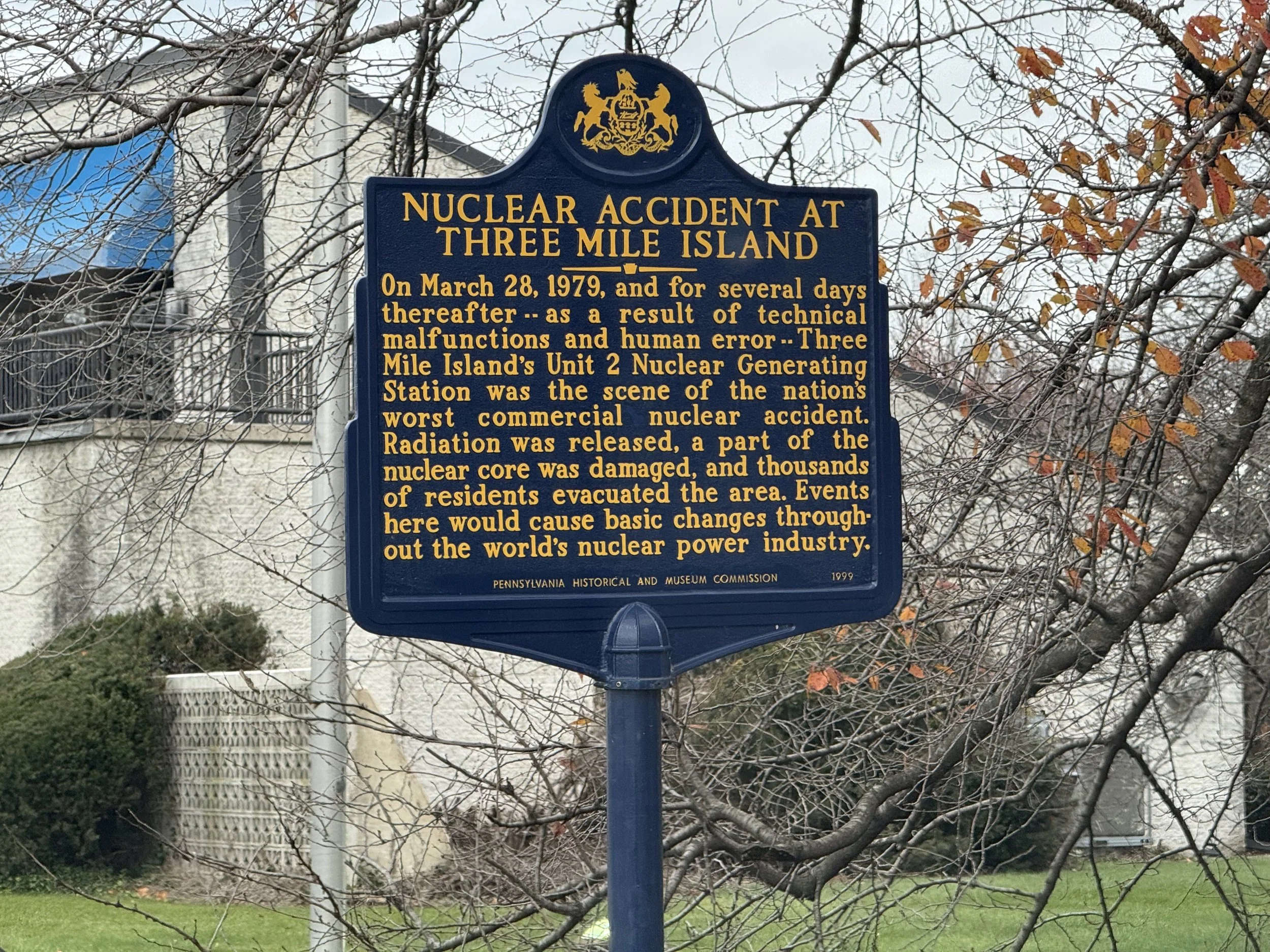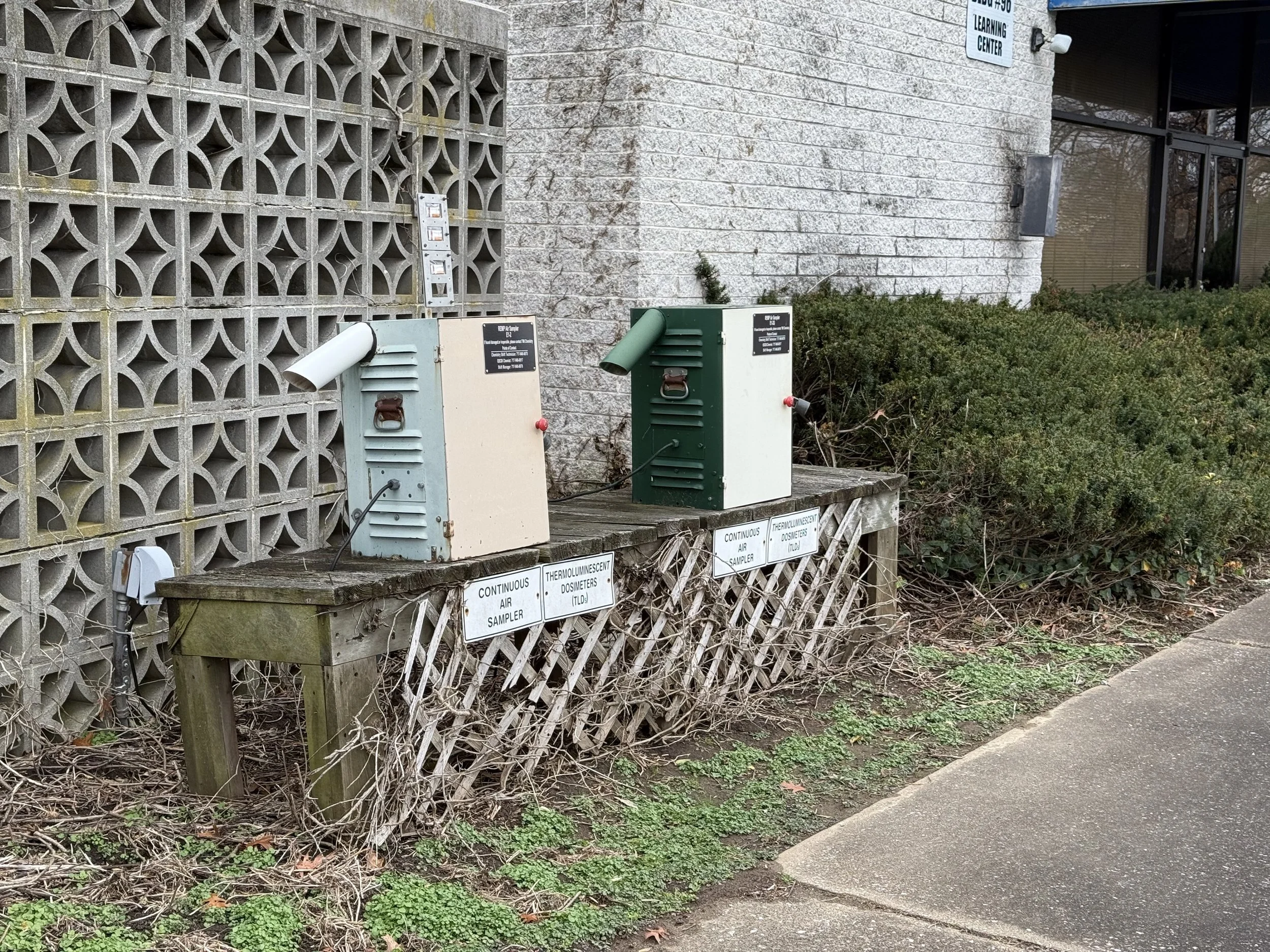What can Aviation and Nuclear power teach us about the art of Rehearsal?
At the time of writing, I'm currently stopped over in Atlanta, on my way to Houston to give clinics to students at 6 high school orchestra programs. Thanks to Houston-area conductors Desiree Overee and Neal Springer, both members of the newsletter, for the invitation to work with your fantastic orchestras!
But back to ATL. It was an auspicious start to the day: shoes were not removed. First flight was smooth and on-time.
Conductor Daniel Harding in his second job. Benjamin Malapris/NYT.
The world of flight has been a popular sourcebook for thinking about the kinds of decision-making we make on the podium every day. And I'm not the first conductor or rehearsal enthusiast to draw connections between this world and the music world.
But rather than recap these stories, I'll tell one of my own.
On my flight home next Saturday, if I am seated on the left side of the plane, it's almost certain that I will get a good view of MDT’s neighboring Three Mile Island (TMI), the storied site of America's most well-known nuclear disaster back in the late 70's. Below is a photo I took of the area while aboard another recent flight returning from Atlanta.
This nuclear site has re-entered the news over the past year as Microsoft has contracted a local energy provider to recommission the site as its sole buyer. Microsoft plans to use it to power its data centers, one of which will be built in the township where we live. Some of these overlapping reasons caused Erin and I to hop in the car for a 25 minute ride over to the site last Fall and check it out.
All photos mine except for two. The one in vibrant colors: Jim Lo Scalzo/EPA. The aerial view with both the nuclear site and MDT: USAF.
It's an interesting place to visit: The visitor's center looks like a ruin from a time gone by, with its aged walls, cracked pavement, and minimal upkeep. The Geiger counters and dosimeters, not unlike the ones portrayed in another HBO series, perpetuate their haunting clicks and clatter indefinitely.
The clicks testify to some of the mistakes that take place in complex systems (like music), where time is short (like rehearsal), where information is incomplete (like any good musical score), and where the stakes are high (or at least they feel high!).
Three-Mile Island itself is entangled with aviation in the world of Naturalistic Decision Making (NDM) and Cognitive Task Analysis (CTA). These terms appear from time to time in my writing because, more than any other psychological framework I’ve found, they seem to mirror my sense of what we do when we step into rehearsal.
How so? NDM tries to understand the world in terms of real world settings rather than the controlled, Skinnerian laboratory conditions people often imagine. And CTA tries to help elicit expert knowledge from observation of, and interviews with, subject matter experts. Observation and Interview: otherwise known as the two of the best ways to learn from experienced conductors. The task in the conductor’s Task Analysis involves the work we do when we try to understand a great mass of sound in mere seconds and correctly diagnose a problem, prescribe a solution, and then find a way deliver that to an ensemble. Though there is much to learn through observation, but these cognitive tasks are not strictly visible: when I watch a great conductor stop to address a musical challenge, I see the problem that was selected. I don’t see the reasons why that issue was selected over the others that were passed over. And I don’t see why the particular rehearsal solution was deemed the right medicine over the other ways it could have been addressed.
But with better observational techniques and better questions posed to experts, we can elevate our craft and our profession. To do so, we will need to begin to think like nuclear engineers and aviators.
As Beth Crandall writes in her NDM-based book Working Minds:
Aviation, health care, and the nuclear power industry are three fields in which
investigation of atypical events have been critically important for understanding acci-
dents and errors and improving safety. An example is the extensive investigation that
followed the nuclear accident at Three Mile Island in 1979…
After the catastrophe at TMI, there were some understandable questions, like...
What went wrong?
When was it caught?
What decisions were made and when?
How did the decision makers receive and interact with information that may have prevented the disaster?
What missed opportunities might there have been?
What training methods might make leaders leaders more capable of averting disaster in the future?
Crandall is a close associate of Gary Klein. Klein was famously entangled in a debate with the late Daniel Kahneman over the value of human intuition: Klein reveres its virtues and Kahneman made a career of exposing its limitations. I've returned again and again to both authors’ writings as a sourcebook for improving two critical ways conductors improve their skills:
How to observe a decision maker in the rumble of a naturalistic setting (i.e. a conductor in a rehearsal).
How to ask questions of an expert to elicit valuable information rather than the information that the expert thinks makes them sound smart. (That's a thing.)
Providing only an average interpretation of a phrase may be a crime against music and taste, but the stakes probably don't include death, ergo the resources and the research into musical decision making here is a bit thin. Instead, we have to turn to other professionals in high-stakes environments like aviation, medicine, and energy where, for the price of a ”wrong note” or “lack of ensemble cohesion,” the sky's the limit.
Here's what I've learned.
According to Klein, humans have at least 9 grand Sources of Power. They include storytelling, metaphor, and intuition. They also include rationality (Kahneman’s more deliberate “System 2”), although in highly dynamic environments where time is short and information is imperfect, rationality quickly falls apart. And, over long stretches, rationality gets tired while intuition remains.
My hunch is that this probably explains why conductors struggle to speak systematically about rehearsal in the first place - there is no coherent system to speak of. Instead, it's an intuitive habitus - an environment or field of activity which lacks a theory of itself; a game which people play but without rules they could explain. That’s not at all to say that music is without rules, but the exact move-by-move rehearsal process is as unpredictable as a Polish Wigilia or an improv session with Wynton Marsalis, as author and professor Allison Wood Brooks convincingly shows. Instead, there are generative principles and guideposts, with an almost infinite number of possible variations.
Humans manage "miracles" and appear to display "ESP" because they have first developed a sense of what's typical, according to Klein. What's typical leads us to generate expectancies - our sense of what is likely to happen next. And violations of those expectancies drop us out of the smooth, inuitive System 1, and into the resource-intensive System 2.
My hunch: this concept of expectancies draws a direct line between experience and execution; and, it makes a direct connection to Score Prep. I think that score preparation is a sort of unique, almost Matrix-like process of downloading into short-term memory all of the relevant knowledge of our past experiences and research about the composition from the present to set up predictions about how a future rehearsal might unfold. Those deliberate System 2 thoughts then prepare the way for an intuitive System 1 rehearsal.
I’d like to close by trying to succinctly offer up a few takeaways that could be put into use today in rehearsal, either mine or yours.
There are good and less good ways to elicit knowledge from experts in the music profession. Try not to ask for advice, and instead try to ask for stories; we can be responsible for extracting the right lessons from those stories.
There are many details of rehearsal that are sometimes hard for experienced conductors to notice but are worth writing down when observing. Beyond conducting and performance, try to record on paper the specific word choice, the setting diagram, the temperature in the room, the height of the podium, the facial expressions of the musicians, and the quality of eye contact. These facts embed a range of otherwise invisible artistic decisions worth understanding.
Score prep is a time to generate expectancies, so that the ear can’t help but rely on intuition to notice.
Conducting ain’t rocket science, or nuclear science, or aviation. But rehearsal is highly sensitive to time pressure, incomplete information, and the sense of high stakes. It makes CTA a great place to turn to for suggestions.








